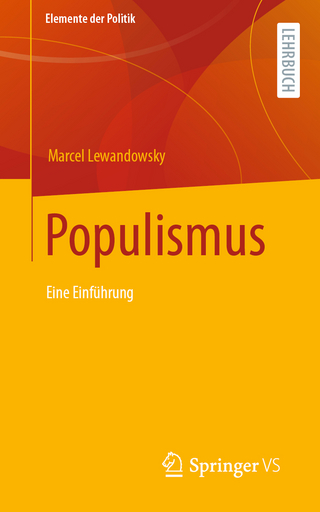
Revolutionary Legacy, Power Structure, and Grassroots Capitalism under the Red Flag in China
Cambridge University Press (Verlag)
978-1-108-47492-4 (ISBN)
Why do political elites in authoritarian regimes, even within the same country, engage in different levels of predatory behavior, whereby some foster vibrant capitalism and others suffocate the innovative private sector? This book proposes a theory of localized property-rights protection under authoritarianism. By combining in-depth fieldwork with archival research and quantitative data analysis, Qi Zhang and Mingxing Liu discuss the post-1949 conflicts between dominant and marginalized factions in the Chinese province of Zhejiang. These conflicts resulted in systemic vulnerabilities among the marginalized local cadres, thus motivating them to form alliances with their grassroots constituents. They therefore provided their constituents with quasi-public goods, such as property-rights protection, to increase their odds of political survival. Zhang and Liu argue that this framework can apply both to the Mao era and to the current reform era, and it also can be extended beyond China to a wider context.
Qi Zhang is Associate Professor at the China Center for Economic Studies in the School of Economics at Fudan University, Shanghai. He received his Ph.D. in Political Science at Northwestern University and another Ph.D. in Economics at Peking University, Beijing. He is the author of numerous articles appearing in academic and business journals, including Political Behaviour, the Journal of Contemporary China, Studies in Comparative International Development, and the Journal of East Asian Studies. Mingxing Liu is Professor at the China Institute for Educational Finance Research at Peking University, Beijing. He received his Ph.D. in Economics at Peking University in China. He has published numerous academic articles in leading journals, including the American Political Science Review and Comparative Politics.
1. Introduction; 2. Revolutionary history in Zhejiang province and its political consequences; 3. The dog that did not bark: grassroots resistance to socialist agricultural collectivization; 4. United in the cultural revolution: the return of capitalism; 5. Capitalism with Zhejiang characteristics: crossing the river by feeling for the stones; 6. Beyond Zhejiang: the Zhejiang model versus Jiangsu province; 7. Discussion and conclusions: rethinking the power structure, the government-business relationship, and the future of the private economy; Appendices; Bibliography; Index.
| Erscheinungsdatum | 22.06.2019 |
|---|---|
| Zusatzinfo | Worked examples or Exercises; 26 Tables, black and white; 4 Halftones, black and white; 5 Line drawings, black and white |
| Verlagsort | Cambridge |
| Sprache | englisch |
| Maße | 157 x 235 mm |
| Gewicht | 630 g |
| Themenwelt | Sozialwissenschaften ► Politik / Verwaltung ► Vergleichende Politikwissenschaften |
| Wirtschaft ► Volkswirtschaftslehre ► Wirtschaftspolitik | |
| ISBN-10 | 1-108-47492-6 / 1108474926 |
| ISBN-13 | 978-1-108-47492-4 / 9781108474924 |
| Zustand | Neuware |
| Haben Sie eine Frage zum Produkt? |
aus dem Bereich


